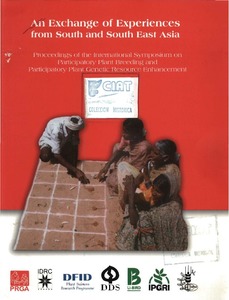The broader institutional context of participatory plant breeding in the changing agricultural and natural resources R&D system in Nepal
Abstract
In the past, many of the debates concerning participatory plant breeding (PPB) have concentrated on the differences between PPB and conventional plant breeding (CPB). In this paper, it is argued that the emphasize on the differences between PPB and CPB has led to (1) a perception of differences where in fact they do not exist, (2) a lack of acknowledgement of the complementary nature of different activities in participative technology development, (3) a lack of acknowledgement of other participatory-research
And technology-diffusion activities taking place in the same locations, (4) a lack of emphasis on looking at legitimate concerns of science and technology policy. This preoccupation with simple notions of differences in the debates has resulted in a lack of knowledge sharing, a Lack of available scare resources, and an inadequate analysis of the institutionalization o PPB processes. This paper concludes that some of the PPB debates are about smaller issues and that major issues of science and technology policy need
To come onto the agenda in the future.
in order to go forward, the authors suggest placing the debates in a broader institutional context where actors are seen to be playing many roles when participating in arguments .bout the pros and cons of PPB .and CPB, It is proposed that those who are knowledgeable in this area look beyond their own organizational, funding, or other interests and help promote. The development of broad-based institutional structures in research and development that mobilize and effectively use the wide range of research resources in Nepal and allow access to fund and scieritifk resources outside of the country. Th. paper illustrates the argument by using case-study materials from recent experiences in Nepal.

